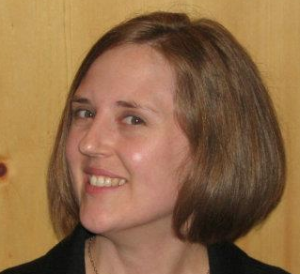
The October issue of First Things has very bad news for women. In a discursive essay on the skills required for career and for motherhood, Elizabeth Corey, the associate professor of political science in the Honors College at Baylor University, concludes that efforts to balance parenting and professional work have a fatal flaw.
Young female students frequently mention concerns about their future to her: whether they “should apply to medical school or take the less demanding physician’s assistant route,” whether to “marry right away and move with” a husband or pursue their own opportunities. In short, they struggle with whether and how to pursue both family and career.
The “pursuit of excellence” and the “desire to care for others” are both part of a full life, she says. One requires “persistence, self-confidence, drive, courage, and initiative.” The other requires “attention, focus, care, patience, and self-sacrifice.” They are not happily harmonized, she writes:
I know from personal experience that this conflict in the soul does not go away, no matter how pleasant and accommodating our colleagues may be, or how flexible our schedules. We are limited, embodied creatures. These limits mean that we cannot do everything to its fullest extent at once, and certain things we may not be able to do at all. The tragic aspect of this is that both excellence and nurture are real, vital goods and that the full pursuit of one often, and perhaps inevitably, forecloses fully pursuing the other.
Some loved Corey’s frank take on the nature of what women are trying to balance. Others disagreed strenuously. Here are what some parents had to say about it:

Patrice Stilley
Not so long ago, I worked hard to have a fun, exciting, high-profile career in the sports and entertainment industry. And then I had my first child. I always thought I’d return to work after my daughter’s birth, but some new software got installed in me and all I wanted to do was stay home with my baby. I was shocked.
Among the things I discuss with my therapist is the recurring theme that sometimes I struggle with reconciling the woman I was — the career-driven, no-nonsense chick I was before bambinos — and the woman I am now, who loves being a stay-at-home mom. Do I think I’m still cool? Am I still relevant in the (male-dominated) world in which I worked so hard to be respected? Shouldn’t I continue to bedazzle my resume and build my career? The answer is: I am doing just that. Different company, more responsibilities. I’ve returned to work twice in the six years since busting into motherdom. And that gap between that hot chick in heels and that hot chick in the lunchroom is not as cavernous as you would think.
I believe that God’s plan for me includes being a high-profile marketing exec and being a stay-at-home mom. But I’m learning not to borrow tomorrow’s troubles and be in the moment for God’s plan for me today. I also know that the season of my life where I defined myself by my fabulous (office) career, did not have my faith or a family as a priority, and has passed. For that I am thankful.
What is coming next will not be defined by me. And who knows, maybe it will be rocking culinary school. Or as a realtor. Or back in the good ol’ marketing and PR realm in which I seem to thrive. But today, God needs me to work on being the best person I can be for my husband, my little girls, my extended family and neighbors, even the dog. My career is now the CEO of my household. And that is all the reconciliation I need.
Patrice Stilley lives in West Chester, Pennsylvania.

Elizabeth Evans
There are a lot of jobs that demand you do the best you can and keep challenging yourself to do better. It is a kind of self-giving different from self-culture. The mode of being demanded by children isn’t of the sort that allows mothers (or fathers, for that matter) to engage in the self-culture that’s such an important part of any sustained pursuit of excellence.
But that’s a subculture of American life, and a privilege only available to the well-educated American man or woman. Lots of jobs don’t demand excellence, they demand adequacy. They may, in fact, be mind-numbingly boring.
Other jobs, like being a counselor or working with the poor, can demand precisely the kind of other focus that she speaks of so compellingly with regard to motherhood (and, to my mind, fatherhood, but that’s not an option for her, as far as I can tell).
What troubles me most about this piece is the way that she sets up straw horses, like radical feminism (an affectation for the highly educated products of the academy), and then shoots them down. That’s so typical of academics. Also context is important — she’s at Baylor, a conservative university. That’s not to say that these conversations won’t happen in other venues, but they won’t necessarily involve getting married at 22 and moving with your husband.
Elizabeth Eisenstadt-Evans is a writer near Philadelphia.

Ben Nichols
As a parent of four small children, including two daughters, I think about this topic daily.
My first concern is the whole concept of career pursuit. As Christians we are called to do excellent work in our vocations, but we are not called to pursue wealth, power, and influence at the expense of our neighbors (including our families). Often “career pursuit” means obtaining the skills, credentials, experience, reputation, and position to pay your way. But it can also be portrayed as an idol of narcissism, personal achievement, and self-justification, which supersedes duties to family. This isn’t a new problem for men, but it is disturbing to me that this view appears to be going mainstream among our future mothers.
My second concern is the doctrine that personal fulfillment is the most noble pursuit. Fixating on our own desires and then satisfying them is the only duty American culture takes seriously. There is little room in our culture to admire putting asides one’s own comfort and desires for the good of others.
Ben Nichols is an engineer in Sacramento.

Jen Lehmann
A few things that she states as definites do not ring true to me. My professional life did not require a different mindset than motherhood does. My job was about caring for others, not personal success. To achieve in the way she describes the professional life, I had to look outside of my job, as I do in motherhood. I think it is entirely possible to pursue that kind of achievement without having a 40-plus-hour-a-week job in which to do it.
I also don’t believe it’s ever too late to pursue that sort of achievement. Forgoing a career or post-graduate education until after children are older is doable. It’s difficult to get back into it, especially in this job market, but it’s possible.
Like most conversations about whether the balance is possible, this fails to take individual personalities into consideration. It would not be possible for me to be the teacher I would want to be and the mother I want to be. I couldn’t spend my days with twenty kids in a classroom and still have anything left for my family when I got home. But I know many people who are able to do both and do it well.
Work is done to support our families. This idea of them being such separate things is a fairly modern luxury. I think it’s wonderful for women to be able to pursue something other than domesticity, but family should come first, as it also should for men. I’ve been told by multiple people that I’m letting my talents go to waste by staying at home with my daughter. This is particularly ridiculous, since my degrees are in education and children’s literature, but the idea that a parent’s higher education is wasted by sharing them only with their family instead of using them to make a broader difference seriously undervalues the family. This is absolutely not to say that every woman should stay home; what works for one family is not what will work for another family. It is ultimately a decision and a balance that can only be found in the context of the particular family’s life.
Jen Lehmann is a stay-at-home mother in Three Forks, Montana.

Caroline Espinosa
A male boss once told me that he was convinced the women’s lib movement was invented by a man because women are now working outside of the home but still mostly responsible for the care and keeping of home and kids. This essay speaks to that.
I’ve lived in the United States, Central America, Africa and Asia and one of the things that is most striking about the various workplaces is how the U.S. workplace does not put families first. Not by a long shot. In the United States, the needs of the workplace always seem to trump the needs of the family, for both men and women.
When I lived abroad, there was never any question about going to a school event or taking care of your child’s appointments. In fact, there was more judgement if you didn’t.
Here, people notice if you leave early because you need to make it to the school play or your child’s soccer game.
Caroline Espinosa is a non-profit manager in Austin, Texas.

Lauren Braaten
The author asks, “Can the longing to have and care for children be combined with a sincere desire to achieve something of value outside the home?”
Why is it so difficult for women to see that raising up good, respectful, hard-working, honest children is to have achieved something of value outside the home? Why do women think that raising up children is somehow of no value? Women are raising up the next generation of scientists, doctors, inventors, scholars, artists, etc.
She goes on to say, “Excellence in a particular field requires persistence, self-confidence, drive, courage, and initiative.” I would agree. Why not then view child raising as a “particular field” in which the mother should strive to use her talents of persistence, self-confidence, drive, courage, and initiative? Why do we view ourselves as having wasted our talents when raising our children? Does it not require just as much planning, organizing, skills of persuasion, drive, courage, and stick-to-it-ness to raise children? Why then are our talents viewed as wasted?
My guess is that it’s because stay at home mothers don’t bring in a paycheck. Their work is not measured in dollars, bonuses, raises, and glowing reviews, all of which are tangible ways a woman knows she’s excelling. Training up a child in the way he should go is very rewarding, but the payout is not measured by the world’s standards.
Lauren Braaten is a stay-at-home mother in Tuscola, Illinois.

Christine Hooks
Her premise seems to be that success in “motherhood” means being able to provide your child with your undivided attention whenever they demand it. (Is this also the definition of successful fatherhood?) I disagree that this is actually a desirable goal and that careers are uniquely in conflict with this goal. I would be a totally different person (and one I wouldn’t like) if I had had parents who always treated me as the center of the universe. The idea that this is a desirable mode of parenting seems to be fairly new, as I know that both my grandparents and great grandparents were more concerned with providing the basics for their children than with providing their undivided attention 24 hours a day. Secondly, a career is not necessarily in conflict with providing undivided attention on a regular basis, it is only in conflict with undivided attention on demand 24 hours a day. It is actually much easier to compartmentalize career time and family time. How many stay-at-home moms with more than one child are able to give any one child their undivided attention on demand?
Christine Hooks is an attorney in Washington, D.C.

Candice Jackson
I think she’s right: There’s a fundamental conflict between success at work and family life (excellence vs. nurturing). And I tend to agree there is no social or political shift that can magically “balance” things for women (not to say that some of these social and political shifts shouldn’t happen, just that they won’t solve this dilemma).
The key in my humble opinion, is acceptance. Acceptance of the limitations inherent in the condition of being human in this world, particularly of being a female human in this world.
As Corey puts it, “We are limited, embodied creatures.” To me, this means accepting that we simply aren’t meant or intended or designed to achieve both excellence and nurturing (e.g., career and family) — at least, not in the fullest sense of each. It’s not a depressing or unjust reality, in my view. It’s liberating to accept it and learn to appreciate striving not for balance or ultimate success in two fundamentally conflicting arenas, but rather for a lot of success in one and medium-success in the other.
That’s not popular in feminist circles (or in many religious ones) but I believe it makes for a happier woman, one who isn’t constantly being set up for failure and disappointment. When it comes to career and family, it doesn’t have to be all or nothing, but it also isn’t ever going to be “all and all.” And if we have the courage to accept this reality, we’ll find that the “most of one, some of the other” layout provides for a rich, meaningful, challenging and rewarding existence.
Candice Jackson is an attorney in Battle Ground, Washington.









